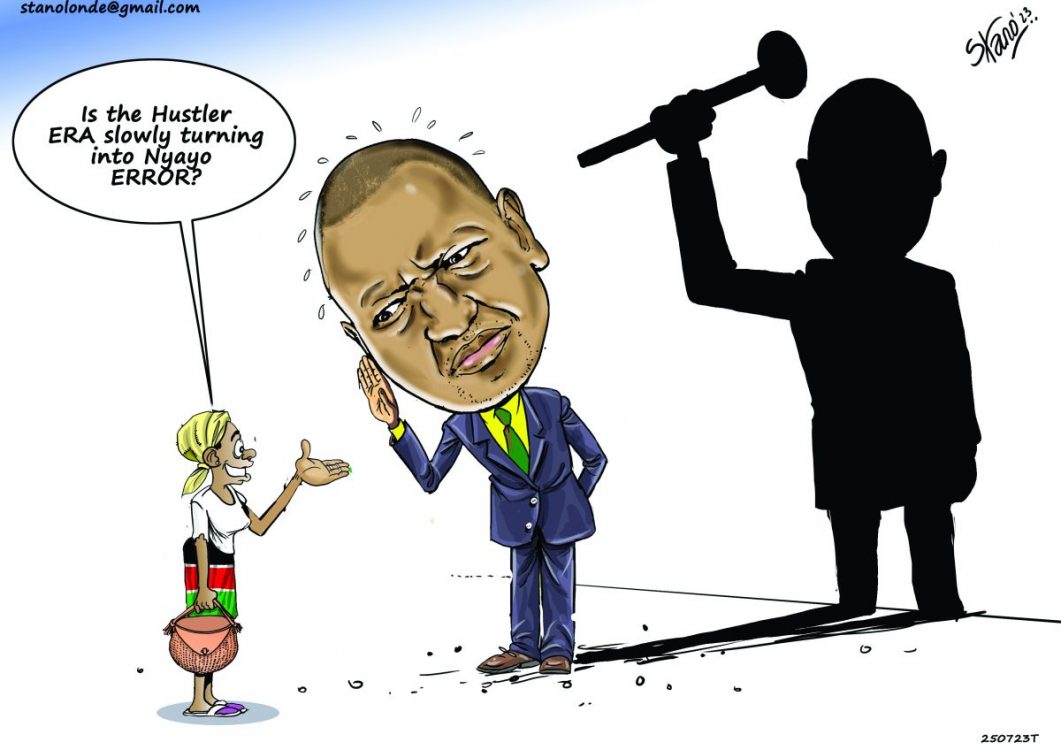Justice is pillar of democracy, law and order

Kenya is going through a traumatic period posing a grave danger to democracy, human rights and nationhood enshrined in the Constitution.
Leaders across the political divide must listen to the voice of reason and adhere to the letter and spirit of the Constitution that
upholds good governance and the sovereignty of the people. While the government has the responsibility of protecting lives and property, it has the constitutional obligation to guarantee that all citizens fully express and exercise their rights. Good governance demands that government upholds justice in maintaining law and order. When people fear that they are denied justice, their recourse is to appeal to God.
That is why leadership needs to heed the calls of religious leaders for all-inclusive dialogue as the nation wrestles with the nature of justice, punishment, fairness and order. Perceived injustices can lead to dissatisfaction, rebellion or revolution.
Justice is founded on the principle of engagement, accountability, cooperation and community. It shouldn’t be personal or based on revenge as the events of the past week appear to show. Excessive force and killings to prevent demonstrators in the name of protecting lives and property must not end up harming innocent people or unfairly punishing certain groups over others. Oppressing the media and desecrating the corridors of justice is an abuse of power and a gross violation of the Constitution.
The image of a democratic and God-fearing leadership committed to a nation of unity in diversity cannot be tempered with innuendos of intolerance and selfish ethnic-leaning political hostilities. It is inimical to claim holy anointing and moral rectitude and yet issue inflammatory warnings of retribution against citizens crying for justice and liberation from marginalisation and penury.
Just leadership listens to the voice of the people, for the voice of the people is the voice of God. The instruments of power should be used to foster equity, inclusion, national heal- ing and reconciliation.
Intimidating statements of anger and contempt against political opponents on the basis of having acquired an election win can plunge the nation into an abyss. It is hard to believe that calls for national dialogue and bipartisan talks are geared towards soliciting a “handshake”. Kenyans long accepted that there is a government with a mandate to govern until the next election.
But they also know that government belongs to the people who gave that mandate, including those who did not vote for it.
The current national crisis is not confined to electoral justice but is tied to economic, political and social justice. It is also subject to intense public and international scrutiny.
Legislators succumbing to the temptation of unbridled power and the alluring lust of blind loyalty to authoritarianism will ultimately bear the consequences of betrayal and misrepresentation. As the Opposition cham- pions the inalienable rights of the people and cries for economic justice in the course of genuine dialogue, it must equally condemn violence, destruction, and police brutality.
The voice of reason is crying for a comprehensive national dialogue firmly rooted in the Constitution that must be based on the four different types of justice:
Distributive justice determines who gets what, procedural justice determines how people are treated, retributive justice is based on punishment for wrong-doing and restorative justice tries to restore relationships to “rightness”.
As our National Anthem clearly states in the first stanza, let “justice be our shield and defender.”












